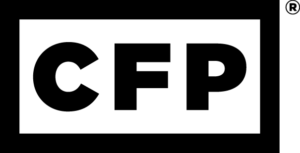by Owen Mulhern, IV CFP®
This article originally appeared in the March 2015 issue of County Lines Magazine.
Should it really come as a surprise
that most of the traditional financial services and brokerage industry either ignores or gives short shrift to healthcare in retirement? Three or four cable news networks are currently dedicated to stocks, bonds, and global capital markets, yet there’s no mainstream focus on healthcare and healthcare costs, despite their importance to a family’s retirement and lifestyle.
Healthcare costs, and most significantly Long Term Care costs, have historically risen at a faster rate than inflation. According to Fidelity Benefits Consulting (2013), “the average 65 year-old couple retiring in 2014 will need an estimated $ 220,000 to cover healthcare costs during their retirement.”
What’s even more significant is this statistic assumes “average life expectancy” and does not include Long Term Care expenses. The advisors who are focused on it, and certainly the families that have experienced its potentially devastating impacts, are keenly aware of the healthcare challenge.
The Challenge.
The retirement healthcare challenge can be presented as the Three “C’s”:
– The first hurdle to overcome is the Complexity of the overall healthcare marketplace, the resulting confusion created by new regulation, and an ever-shifting landscape for providers and consumers alike.
– The second obstacle is Cost and the ever-present debate: Can I afford it? Can I afford not to get it? Other costs to consider include the cost of not acting, cost of waiting too long to act, and cost of acting, including your research time and cost to implement the plan
– The third consequence is emotional and financial strain on you, as well your loved ones and Caretakers.
In dealing with the Three C’s, many pre-retirees’ and retirees’ first healthcare decision will be to bridge the gap between employer-sponsored healthcare coverage and Medicare eligibility at 65. During this period, a person who’s not covered under a spouse’s employer plan would need to find coverage in the private market – either directly with an insurance provider or through the “Marketplace” created by the Affordable Care Act. In either case, it’s solely up to consumers to determine their best course of action, and many are surprised by the high, unsubsidized costs of private insurance.
Medicare Options.
The second set of major healthcare decisions that most retirees face concern Medicare, Medicare Advantage and Medicare Supplemental Plans. The timing and importance of these decisions – made primarily during the three months before and after turning 65 – can seem daunting. A bit of homework and planning can help retirees make choices with confidence.
Long Term Care Insurance.
The 900-pound healthcare gorilla in the room is Long Term Care Insurance (LTC) and the debate that rages about the need for it. Remember, LTC steps in to cover custodial and unskilled healthcare costs that are not covered under Medicare or major medical insurance.
According to The U.S. Department of Health and Human Services, about 70% of those 65 or older will require some type of LTC services, either in their homes or an assisted living facility. Many retirees will have no trouble covering those costs from savings and retirement accounts.
There are, however, a significant and growing number of Americans who, despite good savings and retirement planning, are forced to liquidate assets and estates because of illnesses that require around-the-clock care. This can be extraordinarily expensive. According to MetLife, the average cost of a private nursing home is $90,000 a year, and in many states exceeds $100,000.
Plan Now.
Contrary to popular belief, continued advancement in medical technology, life-saving procedures, and increased life expectancy contribute to medical conditions that require significant long term family and medical supervision; and it’s not cheap. The chances that it will affect you or someone close to you will only go up in the next 25 years.
To avoid irreparable damage to a family’s financial plan, it’s imperative to make healthcare planning a front-burner family conversation. Even small measures and a continued open dialogue between advisors and the family can create a heightened sense of confidence and a definitive step toward being better prepared.
Start the conversation now to plan for this important part of your retirement.




